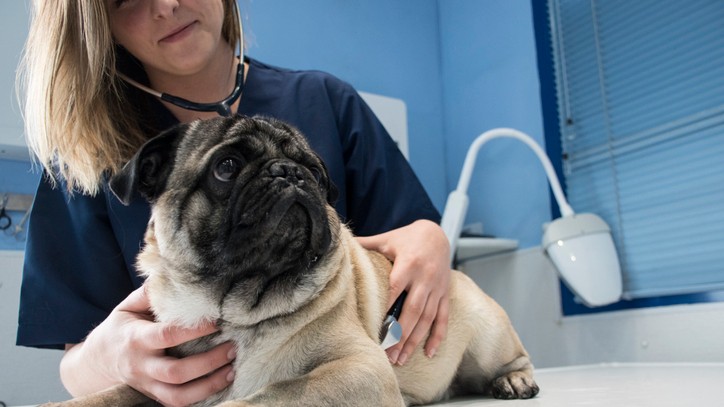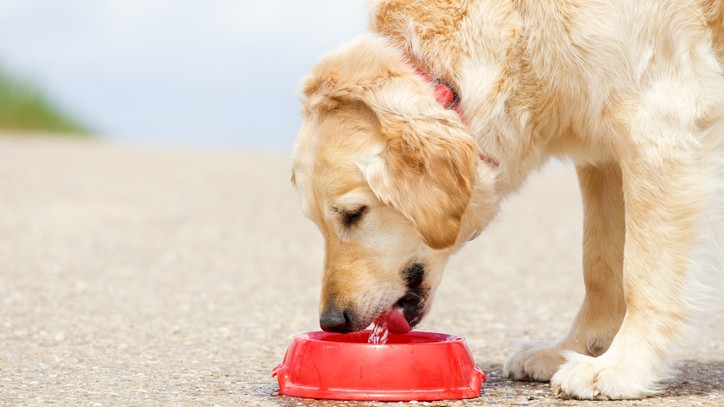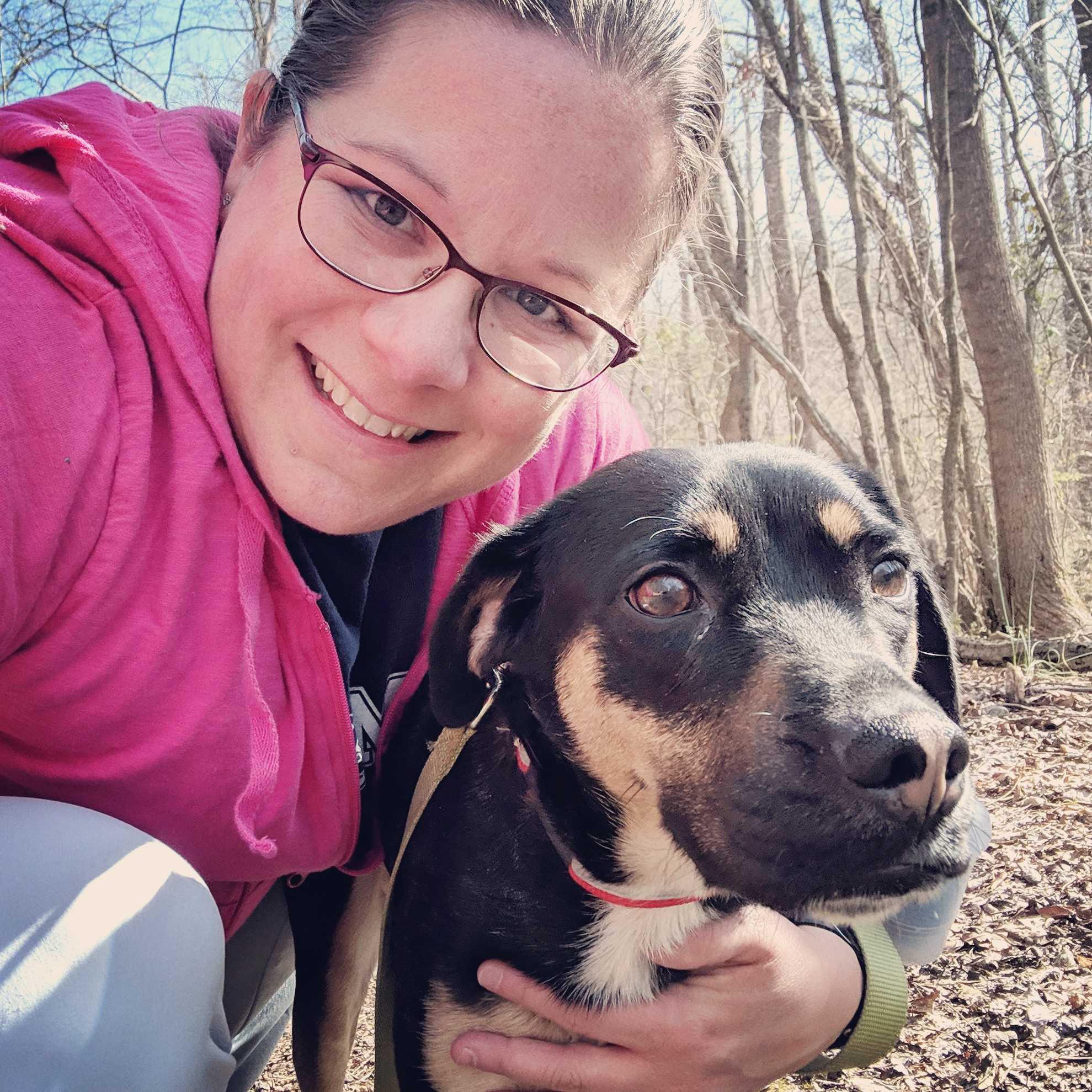How to treat gastritis in dogs
When it comes to gastritis in dogs, it’s important to know what to do

Get the best advice, tips and top tech for your beloved Pets
You are now subscribed
Your newsletter sign-up was successful
Gastritis in dogs is a term that refers to stomach inflammation. This inflammation can occur in one of two forms: acute or chronic. In acute gastritis, stomach inflammation develops suddenly and is short-lived; in fact, acute gastritis may even resolve without treatment. In many cases, the underlying cause of acute gastritis is never identified, although it may also occur when a dog gets into the trash or eats something else that he shouldn’t be eating. Chronic gastritis, in contrast, is an ongoing problem that can persist for weeks or months. Some cases of chronic gastritis have an identifiable trigger, such as parasites, a food allergy, medications, or other irritations, while other cases are caused by a poorly-understood immune reaction. Accurately diagnosing your dog’s gastritis and identifying an underlying cause (if one exists) are essential components of treatment.
- Best dog food for allergies: Simple ingredients for a healthy hound
- Six dog nutrition myths busted by a vet
- Eight hidden dangers for dogs around the home
Signs of gastritis in dogs
Acute gastritis typically causes a sudden onset of vomiting. Your dog may have been completely fine yesterday, but today he is vomiting repeatedly. Other potential signs of acute gastritis include decreased appetite, lethargy, and pain within the abdomen. In severe cases, dogs may develop a fever and/or dehydration. You may know what triggered your dog’s signs (for example, maybe he got into the trash can earlier in the day) or the vomiting may begin with no known cause. Either way, the hallmark of acute gastritis is that a dog rapidly goes from normal to very ill.
Chronic gastritis, however, has a more gradual and subtle onset. Dogs with chronic gastritis frequently vomit, but the frequency of this vomiting may vary. Your dog may have good days, in which he doesn’t vomit at all, and bad days, in which he vomits several times. Signs may appear to wax and wane. Like acute gastritis, chronic gastritis may also be accompanied by decreased appetite, abdominal pain, and lethargy, but these signs often appear to develop gradually. Depending on how long the condition persists, dogs with chronic gastritis may experience weight loss and may even become emaciated.
Diagnosis of canine gastritis
There are a number of different illnesses that can cause vomiting in dogs, so it’s best to see your veterinarian for a diagnosis. Your veterinarian will first perform a thorough physical exam, assessing your dog’s overall health and looking for signs of dehydration, fever, weight loss, and/or abdominal pain. Your veterinarian may also perform blood tests to rule out other underlying causes of your dog’s gastrointestinal illness.
Depending on your dog’s clinical signs, your veterinarian will decide whether to treat your dog symptomatically (in the case of mild, acute signs) or perform further diagnostics. Further testing is typically recommended for dogs with severe and/or chronic signs. Additional tests may include radiographs (x-rays), abdominal ultrasound, and/or endoscopy. The only way to obtain a definitive diagnosis of gastritis is through a biopsy, so your veterinarian may also recommend this test. To perform a biopsy, your veterinarian will obtain a tissue sample from your dog’s stomach via endoscopy or surgery. This tissue sample will be examined under a microscope, in order to provide a definitive diagnosis.
Prescription treatments for gastritis in dogs
Acute and chronic gastritis in dogs are typically treated with prescription anti-nausea drugs. Common anti-nausea drugs used in dogs include ondansetron, maropitant, metoclopramide, and others. Each of these drugs is intended to control the nausea that accompanies gastritis.
Your veterinarian may also prescribe antacids to decrease the production of stomach acid, especially if your dog has been vomiting blood or showing other signs of stomach ulcers. If an underlying cause for your dog’s gastritis is identified, such as intestinal parasites, additional treatments may also be prescribed to address the underlying cause of your dog’s illness. Some cases of gastritis are autoimmune in nature, requiring treatment with immunosuppressive medication.
Get the best advice, tips and top tech for your beloved Pets
If your dog is dehydrated due to vomiting, your veterinarian may recommend admission to the veterinary hospital for intravenous (IV) fluid therapy. Fluids will rehydrate your dog and help him feel better, while also restoring electrolyte levels and appropriate acid-base balance within the body. Additionally, your veterinarian can administer injectable medications while your dog is hospitalized, instead of relying on your dog’s ability to keep down oral medications.

Home care for gastritis
While it’s natural to want to help your pet at home, you should avoid giving human medications to your dog unless instructed to do so by your veterinarian. Many seemingly innocent human medications can have unexpected effects on pets; for example, Pepto-Bismol® is broken down to salicylic acid in the stomach, which can be toxic to dogs in large doses.
The best at-home treatment for gastritis is a bland diet. Food can be withheld for 12-24 hours in cases of acute gastritis, though your dog needs free access to water to prevent dehydration. When your dog stops vomiting, you can begin feeding small amounts of boiled chicken with cooked white rice. Feed two or three small meals a day for the first 2-3 days, then gradually increase the amount fed and transition your dog back to his regular diet.
Home care, however, is not a substitute for appropriate veterinary care. While many cases of acute gastritis will resolve with conservative treatment, your dog’s vomiting could have a more serious cause. If your dog vomits repeatedly, or vomits for longer than 24 hours, it’s important to contact your veterinarian.
Gastritis in dogs: Summing it all up…
Any time you suspect gastritis in dogs, you should contact your veterinarian. Your veterinarian will determine whether the severity of your dog’s symptoms and your dog’s overall health status warrants an aggressive diagnostic workup or whether symptomatic treatment is a reasonable approach. While some cases of gastritis in dogs will respond to a bland diet, other dogs may require anti-nausea drugs, antacids, or even hospitalization. Talk to your veterinarian to determine the best options for treating your dog.
Dr. Barnette is a graduate of the University of Florida, where she received both her B.S. in Zoology and her Doctor of Veterinary Medicine (DVM). She has 15 years of clinical experience as a small animal veterinarian, treating dogs, cats, and occasional exotic patients. She now works as a freelance veterinary writer, creating educational content for veterinarians, veterinary team members, and dedicated pet owners. Dr. Barnette lives in southwest Florida with her husband and daughter (plus two cats, a dog, and a rescued dove!) and enjoys kayaking, biking, and hiking. Learn more about Dr. Barnette at www.linkedin.com/in/catherinebarnette.

